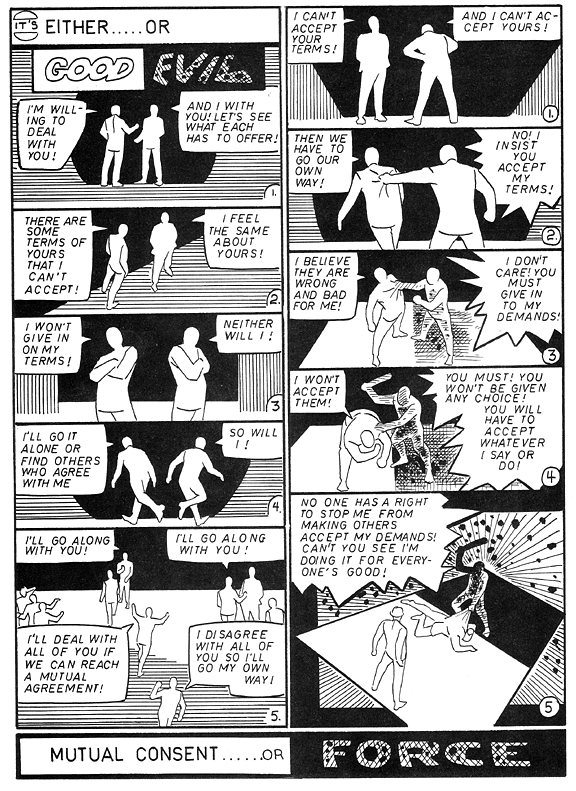
Liberty activist Sam Dodson's recent victory over the Cheshire County government in New Hampshire has inspired our own Webmaster Joe - but like many family men, he feels he hasn't the right to jeopardize his wife and two daughters' security by committing civil disobedience.
I'm not sure I agree with his description of illegal activism as "self-indulgent". Most of the men and women who have previously liberated American society from various evils had families; most of the Iranians currently protesting in Tehran's streets and opposing Ahmadenijad at risk to life and limb (God bless them all) likely have them. That they were and are still willing to engage the enemies of freedom underscores their commitment against injustice - and if we all felt such conviction, the injustices of today would likely never have been allowed to take root in the first place.
Which is not to downplay Joe's concerns regarding how civil disobedience might affect his family or to suggest he needs to "man up" and get to chaining himself to fences. No, no - the point deserved to be made, now has been, and I'd prefer to suggest methods by which citizens like Joe might contribute without undue risk to their livelihoods.
Having said that, my first suggestion will probably seem strange: cheat on your taxes. Starve the beast of government by denying it the funds with which to finance its clearly immoral and illegal programs. For the time being this is actually very safe, according to BookKeeperList.com, which writes that in in one recent year "only 2,472 Americans were convicted of tax crimes — .0022 percent of all taxpayers." That's despite the fact that the IRS believes 17% of Americans are not compliant. The IRS just doesn't have the manpower or data-mining equipment to inspect everybody and when it does find suspicious claims it rarely prosecutes. So really, what's the worst that can happen? Paying back-taxes? A penalty, maybe?
But I am am addressing at least one (and probably several, statistics tell me) Christians, so the question naturally arises: isn't that unethical? I've recently reached the decision that it is not. Even if you believe that every government which obtains power over you is legitimate by divine decree (which is stupid - does that mean African-Americans were wrong to protest in the '60's?), to "render unto Caesar" is one thing, especially in a country in which we have a deal with our Caesar; to render unto a known embezzler is another - and it is now undeniable from public information that we Americans are being taken for a financial ride. Even if you accept the idea that they have the right to take money from some people and give it to others, they're not doing that with the money you give them. They're just thieves.
Take for example John Stossel's investigation into the government agency meant to assist Native-Americans in poverty. He's found that $40,000 is purportedly spent on each Native-American purportedly being helped - an amount which obviously would put them all in the middle-class if we simply cut each of them a check for the amount.
Obviously, that money isn't going to those tribes. The government tells us it is, but it isn't - and even the government isn't so incompetent as to mismanage that much moolah. People aren't that stupid, Folks. It's being stolen from you - just as it's being stolen from you inside the Department of Defense (they've been trying to produce a credible financial statement for approximately a decade now), inside the Fed (which hasn't been audited in nearly a century), and doubtlessly inside many other departments.
I'm not saying it's necessarily being stolen from you without being accounted for. I'm sure most of the money that our government officials give to their friends is accounted for on their budget and rationalized, if poorly. But it's still being stolen. The intent of these people is not to help Native-Americans.
A second argument against faithfully paying taxes: I won't declare paying your taxes to be sinful (after all, it's basically the equivalent of handing your wallet to a robber - "Give us the money or else!"), but through your taxes you are funding programs you know to be morally wrong. I can't see that failing to assist evil men in their evil actions can be wrong.
(I wish this conversation was more than academic for me. In my life, the metaphor of the government as highway robber takes on a light-hearted tone. Thumbing through my wallet, the masked menace's eyebrows rise. "Really? This is all you have? Dude, tell you what - just keep it.")
Let's move on to another idea: If you can't be disobedient, fund people who are. The CD Evolution Fund is a charity which financially supports liberty activists in New Hampshire, usually by paying for their legal aid. The fund was instrumental in supplying Sam Dodson with representation during his two-month incarceration.
Obviously, you can also support other liberty-oriented projects. In fact we may want to discuss a libertarian tract of the sort produced by Mr. Ditko; I have $250 in my "Time for another project" account and am currently considering what might eventually pay for itself.
Finally, don't cooperate in your victimization to the extent the law allows. This will still make your life more difficult, as police and government officials don't like it when citizens remind them of their limitations, but freedoms are like muscles - if you don't exercise them, they waste away. Never let a government agent or policeman inside your house without a warrant. Don't tell traffic cops where you're going or where you're coming from if all they stopped you for was speeding.
A number of Free Staters and general libertarians take this tactic to daring levels, openly carrying firearms in areas legal to do so.
Before I close, a note on one tactic you haven't yet heard me mention: voting. To vote for a Libertarian is a harmless enough act, I suppose - and sure, it registers disapproval with the system as it stands - but like Ian on Free Talk Live I'm now wondering if it wouldn't be more productive to deny the legitimacy to our government granted by the electoral process. One of the reasons so few people offer more than token resistance to any government program is that the government is still considered to some extent "all of us", even if it's doing something illegal. But it's not. And perhaps ceasing to play into the pretense that it is would help bring light to that fact.
I think I'm done for now. One thing's for sure, Joe... With people like Sam Dodson doing as much as they are, there's one tactic we can't choose: getting along to get along.

